When I returned to the Catholic Church in 1999, I did so as a man who could only remember the folk guitar Masses of the 1970s. For I grew up believing that Simon and Garfunkel’s “The Sounds of Silence” qualified as the height of liturgical music, that readings from the Gospel and “Jonathan Livingston Seagull” were interchangeable, and that a proper position during the consecration, after being pulled from the pews by a grinning priest and forced to lock hands with him and other bewildered children, included swaying around the altar. As a Catholic boy, I never experienced reverence or the sacred, but I had an instinctual longing to experience the divine order of God.
For a pre-homosexual boy, the idea of God became entangled with my perception of men, masculinity, male-bonding, fatherhood, and “Our Father.” Like most men in my life, God the Father was distant, critical, and highly judgmental. His Son, as depicted by the 1970s sisters-in-slacks, was an incongruous amalgamation of Che Guevara, John Lennon, and Mahatma Gandhi. Their image of Jesus Christ was almost based on a sort of fandom similar to the awkward and lonely rock and roll groupie that project all of their hopes and insecurities onto a person who in reality bears little resemblance to those expectations. Consequently, Jesus increasingly reflected the personality traits of the sisters as well as their longing for political and theological revolution. He became cloying, motherly, but largely ineffectual. I was to be protected from the other little boys who bullied me. Only, I became locked in their suffocating embrace. Through their efforts, Christ would remake society into a world where I could find acceptance. In the meantime, I had a safe-space. This offered immediate salvation with no redemption.
Because the presentation of the catechism centered upon the primacy of the conscience, and the post-modern notion that there is no single truth but many interpretations of the same situation, Jesus appeared conflicted and inconsistent. I needed a real man to save me.
In search of a heroic savior, I thought I could find my missing identity through an almost sacramental union with another man. In San Francisco, I finally entered what I believed was the exclusive environs of the ever elusive male. This was the world that hitherto unanimously rejected me. To my initial delight, there were a number of older, patient, and self-confident men willing to guide me. Yet I paid a heavy price in order to receive their attention and instruction. Nevertheless, I felt protected and safe with them. They became my adviser, mentor, and priest. What they offered was a reprieve from the present with nothing lasting beyond the two of us. Yet for a few moments, sex almost seemed sacred and I thought I could touch the transcendent only to have it slip away as the levels of adrenalin dipped in my body. Although I increasingly felt unfulfilled, I couldn’t walk away because to do so would require a risky journey into uncertainty.
However, one day, I couldn’t avoid any longer what was my destiny – a confrontation with the Father. Sensing that the eternal only genuinely resided in one place, a Catholic church, I inexplicably reached out towards the disaffected faith I slightly remembered from my youth. An overly expressive and smiling priest greeted me. As we talked, he took my hand and tried to sooth my anxieties by giving what he thought was a comforting assurance: that I had been born gay. He thought his parish could be a place of welcome and security away from the homophobia of society and the greater Church.
After years of struggling to somehow find a sense of certainty within Catholicism, the clarity that I always longed for I discovered in the Tridentine Mass. Born in 1969, I never knew it, therefore the pre-Vatican II Mass was not a nostalgic trip backwards for me, but a step forward in terms of bringing order into the chaos of my life. Before that, I struggled to attend Mass as my already frayed nerves became further jangled by the constant strum of an overzealous guitar player accompanying the sonorous strains from the St. Louis Jesuits. The saccharin sentimentalism of those songs from my childhood caused me to recoil in a near fit of PTSD – I then spontaneously cringed even further when someone tried to grab my hand during the “Our Father.”
When a friendly Catholic laywoman introduced me to the Tridentine Mass, I was instantly surprised to find the pews filled with families and men. The priest controlled his every movement as if God were truly in front of him. And then, I knew something was truly there.
No one tried to push my arms into the orans position, but a kind young man, only a couple of years older than me, pressing one sleeping kid against his chest while another leaned up against his father’s free arm, somehow managed to recognize a newcomer and offered me missal. I didn’t know what it was and fumbled through it. Further noticing my awkward unfamiliarity, he reached over, displaying a remarkable ease of dexterity, flipped the book to the right set of pages while barely disturbing his two sons. I looked up as the priest finished reading the Epistle and the soldier-like altar boy carried the Roman Missal as if it were a holy relic. I was transfixed.
Since I had to drive a relatively long distance from my home to reach the parish where the Tridentine Mass was regularly offered, sometimes I couldn’t make the trip and instead dropped into one of the local parishes to fulfill my Sunday obligation. Therefore, on one particular day, I took in a deep breath and sighed as I walked into the Church and noticed a large guitar choir nosily setting up in the corner and warming up their rendition of “Sing to the Mountains.” I was immediately transported to the 1970s folk Mass jamborees.
I glanced at my watch and it was a couple of minutes past the hour – then almost five minutes. I looked to the vestibule of the Church and saw a fully-vested older priest standing at attention. I didn’t recognize him. Oh well, the choir isn’t ready. In the meantime, parishioners talked to each other in the pews. I knelt to say a short prayer, couldn’t concentrate and then gave up. Guitar straps were going over the heads of the players and music sheets shuffled about, when the priest unexpectedly strode up the center aisle. The choir was dumbfounded. Father kissed the altar and moved to his position. He said: “I’m ex-military and I am accustomed to starting on time.” I beamed with joy. In matter of seconds, a man just took command of this disorder.
Shortly after his abrupt entrance, Father explained a little about himself: he had been a military chaplain for many years and was now retired from the service, but he often filled in for vacationing or ill priests in the area.
This priest was confident, but not conceited. After Mass, I had to meet him. We talked and I appreciated Father’s honesty while I think he perceived my admiration for him. And over the next few years we became friends.
Father didn’t talk a lot, but what he said was always worth saying. He didn’t engage in superfluous chatter, every action, including speech had a purpose – and the objective was always saying and doing what was right and true and good. As his altar-server, I got to observe father close-up a few times during Mass, he didn’t tolerate liturgical innovation – he was by the book. I guess in that way, he wasn’t memorable like the more flamboyant priests – but he made sure that Christ was memorable. I will never forget a day when I thought he looked exceedingly tired. Father lived out of town and he had to drive home and then back again to say Mass. He never once complained. I made a concerned comment about how I thought he was doing too much and perhaps pushing himself; just before he walked out the door, he said: “We are here to suffer.” I couldn’t forget it. Because inside of me, there persisted this need to be protected and shielded from any kind of suffering. I was scared of what he willingly accepted. But I felt safe when Father was around, not because he held my hand or coddled me, but because he spoke the truth – even when it was difficult to hear.
Father never tried to soften the Truth – he treated me like a man not like a child who could possibly get upset. And when a man treats you like a man, you intuitively respond that way. Hence, the fundamental problem with the majority of Catholic outreach to the “gay” male community is that it begins with an overly-cautious approach which tends towards emotionalism and a maternal need to protect that eventually becomes co-dependent and facilitating. In the age of AIDS, I saw this dangerous psychosis play out to the extreme – wherein the trusted advisor to a “gay” man would hold the hand their friend to the grave rather than say anything honest which could be perceived as offensive or disapproving.
Father wouldn’t send a solider out into the battlefield ill-prepared for the fight. And I loved him for it. Because he cared about me, and the truth, not my often irrational and transitory feelings. I could get over a hurt feeling – death in ignorance and sin is forever.
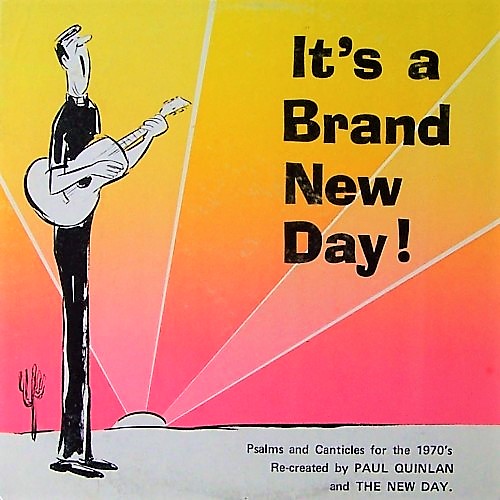
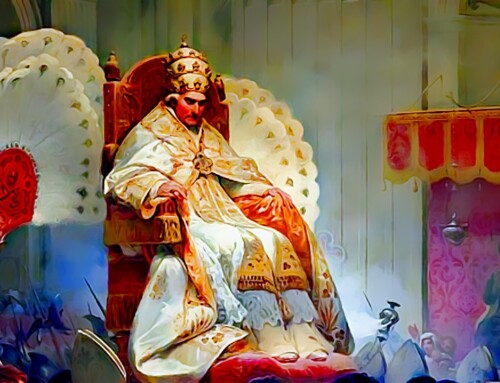
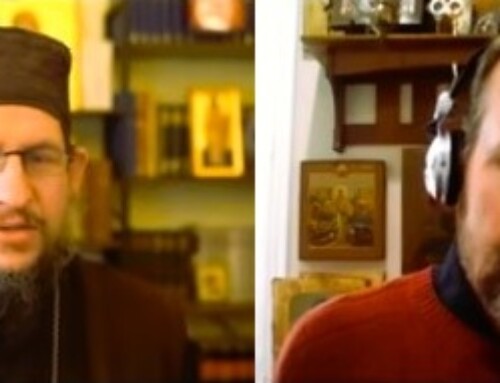
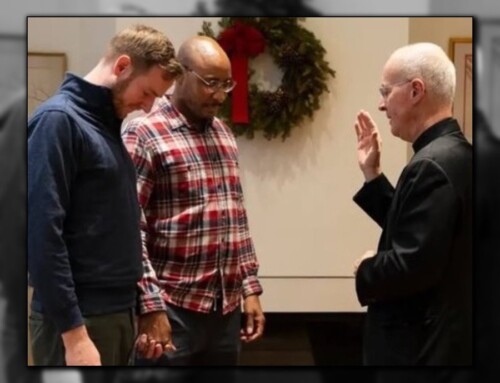
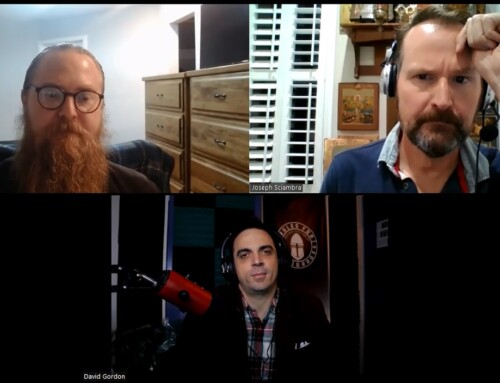
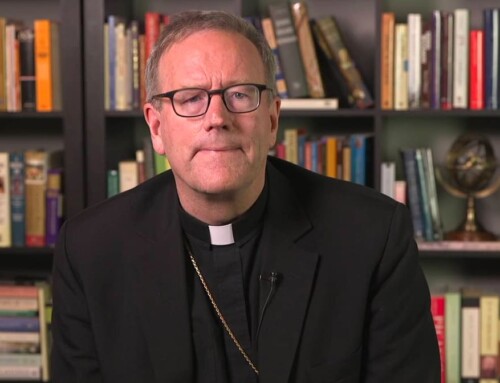
Thank you.
Brilliant.
And most appreciated.
Wonderful ! Thank-you Joseph.
Beautiful